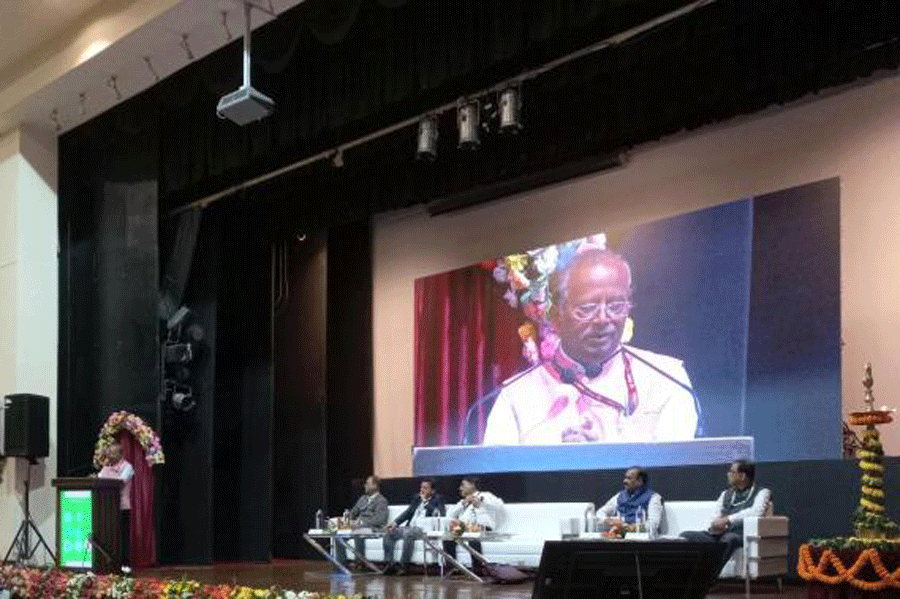The use of biomass in iron-making is native to this area, and it’s time to try to go back to the roots, Union steel secretary N.N. Sinha said in Jharkhand on Friday.
He was speaking as the chief guest at the inaugural session of BioS 2023, a two-day seminar on Biochar in Steelmaking, that began in Ranchi on Friday.
Sinha reminded the audience that the members of the Asur tribe of Jharkhand had been smelting iron using bio-charcoal in ancient times.
The seminar, organised by the Steel Authority of India Ltd (SAIL) in association with some other organisations, including the Indian Council of Agriculture Research (ICAR), aims at discussing how to use biowaste as a replacement for coal, at least partially, in steel-making.
“Since Indian coal has high ash content, most of the good quality coal has to be imported although some local coal is also used after processing for reduction of its ash content,” Sinha said, adding that any alternative would help reduce not only import dependence but also carbon emissions to some extent in the steel industry, which is too high at present.
“Bamboo could be a viable alternative for about 20 per cent replacement of 50 million tonnes of coal required at present,” he said. It would not be a big ask as 10 million tonnes of biochar would need about 25 million tonnes of bamboo and there are some varieties available in Assam that grow pretty fast, he added.
Sinha outlined the challenges for identifying the maximum level of replacement of coal in the steel industry, different kinds of biomass that could be used and their possible sources.
“It’s nice to note that the seminar is being organised close on the heels of the announcement of floating of the Global Biofuel Alliance during the G20 summit in New Delhi last week,” the Union steel secretary said. The successful use of bio-charcoal in steel-making would help achieve the aims of the mission of decarbonisation to some extent.
“Besides bamboo, agriculture waste that is normally burnt in areas around the national capital, causing heavy smog in and around Delhi, could also be used for the purpose,” suggested Sujoy Rakshit, director of the local biotechnology institute of ICAR.
Welcoming the delegates earlier, Nirbhik Banerjee, executive director in charge of Ranchi based Research and Development Centre for Iron and Steel (RDCIS) of SAIL, said that the challenge was “to render the process of steel-making greener and also to explore the process of decarbonisation by using biochar as a possible raw material”.











